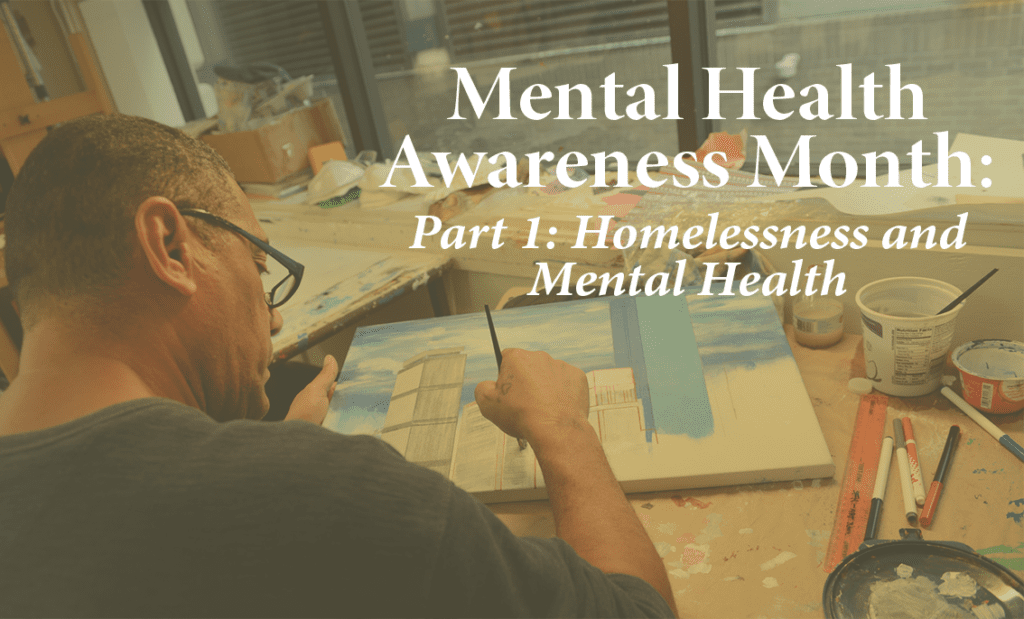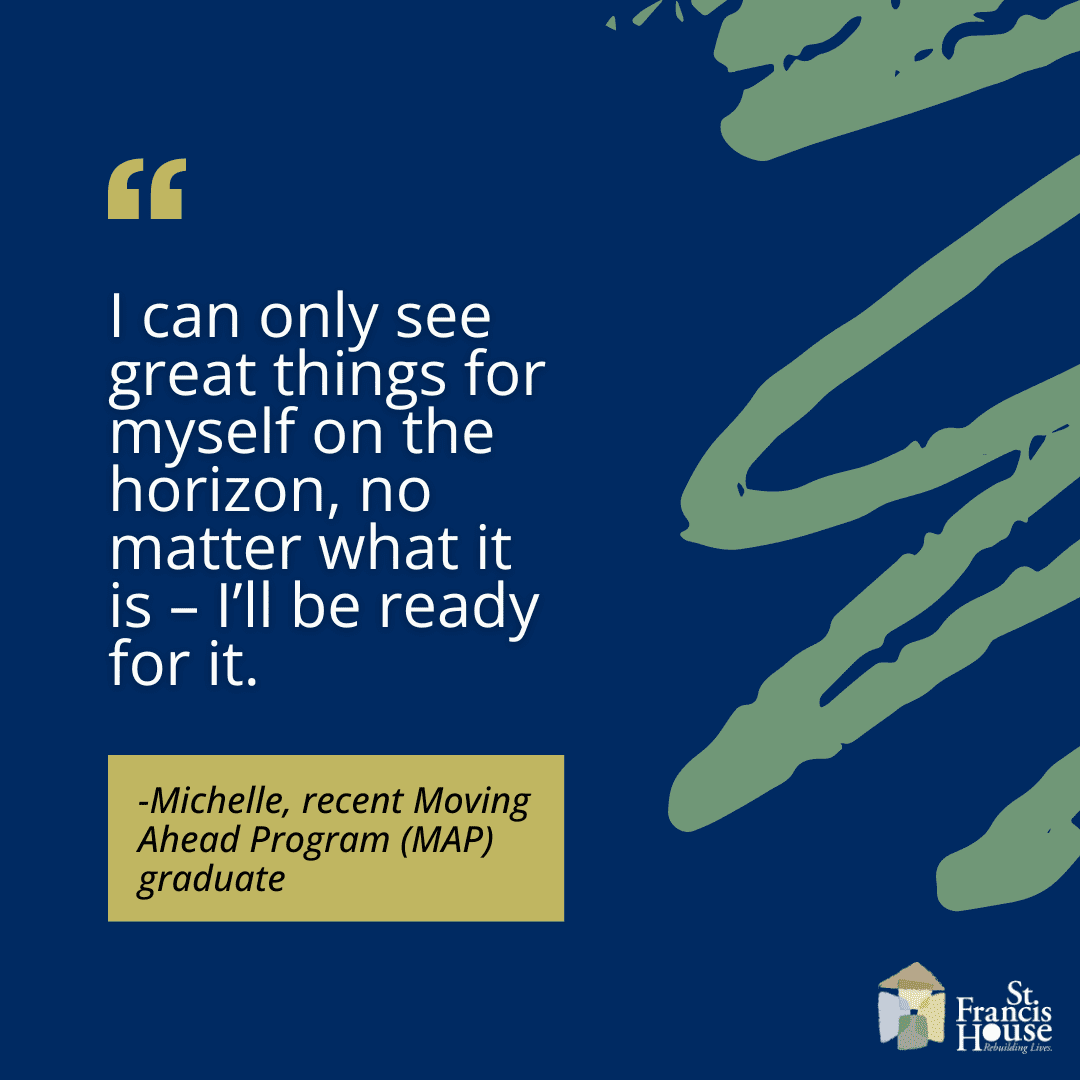Part 1 of our 3 part series for Mental Health Awareness Month
With the COVID-19 pandemic taking a toll on all of us, taking care of our mental health is more important now than ever.
Unfortunately, there’s a great deal of difficulty maintaining your mental health while experiencing homelessness, regardless of global emergency.
People become homeless for many different reasons, and mental health difficulties are often one of those reasons. At the same time, there are many people who did not suffer from mental health disorders before they began experiencing homelessness. If a mental health issue did not exist before, it’s quite likely to develop while they’re experiencing homelessness. After all, the experience of being homeless is traumatic in and of itself.
Those who are without housing are more vulnerable to experiencing trauma and being re-traumatized. They typically have less access to mental health care and are at higher risk of developing a substance use disorder. Individuals may lack transportation to get to mental health or medical appointments or have difficulty maintaining a healthy routine and adhering to a schedule.
Unfortunately, guests who stay in shelters are at risk of having their medications lost or stolen. Those individuals who stay in shelters often have limited choices with respect to what they can do. They may have to get to the night shelters at 3 pm in order to get a bed, which means they can’t sign up for a mental health appointment much beyond the early afternoon. In the shelter, they often have to wait in lines to use a phone or a computer to make appointments, request medications and communicate with those who can help support them. Guests also wait in line to take a shower or receive personal hygiene items, and the inability to care for oneself can have an impact on self-image.
Those who stay outside don’t fare any better, since their time is very unstructured and their safety is at risk on the streets. Many individuals with several mental health issues choose to stay outside of a shelter because it’s chaotic, and being around too many other people is more than they can tolerate.
Homelessness is an extremely lonely state with no relief. Individuals may have trouble cultivating community and genuine relationships. In addition, when you are homeless, you do not get alone time when you need it. Whether spending their nights in a shelter or living on the streets, those without housing have less access to healthy, nutritious food; opportunities to exercise; the flexibility to focus on their goals and future – all elements that contribute to sound mental health.
In the second part of this series, we focus on elements of the COVID-19 emergency, and what this pandemic means for our guests struggling with their mental health.
Read Part 2: When it comes to mental health, COVID-19 makes matters worse.
For more information on the Clinical and Recovery Offices at St. Francis House, you can read more about our services on our website here.



